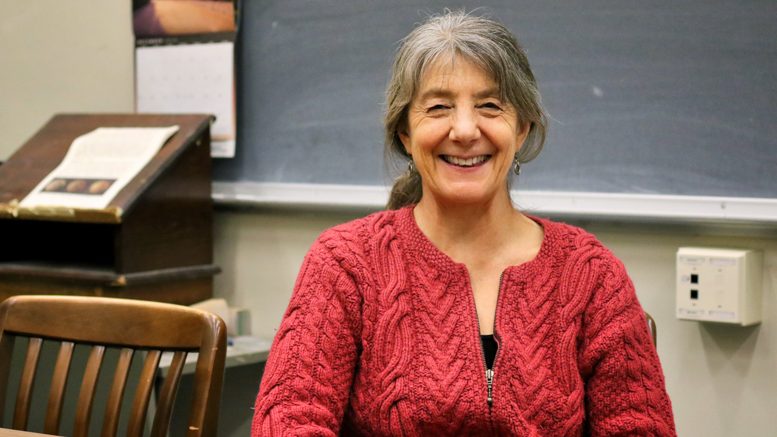On March 14, the University of Manitoba’s department of entomology hosted a seminar on honeybee colonies by Marla Spivak, a professor of entomology at the University of Minnesota.
Spivak is a prominent bee researcher who specializes in bee health and hygiene. In 2010, she was awarded a MacArthur Fellowship grant, and in 2013 she gave a TED Talk on the rapid disappearance of honeybee colonies.
After the seminar, Spivak spoke with the Manitoban about the amazing behaviors that bees utilize to keep themselves healthy.
Bees use what Spivak calls “social healthcare” within their colonies. These are basically steps that bees will take to ensure long-term health for both themselves and the entire colony, and can range from preventative measures to executions of bees from the hive.
While Spivak says that this concept is similar in theory to our own publicly funded healthcare system, where singular members of a society contribute to the wider health of the brood, she notes that bees do it without any overt governance.
“It applies fairly directly, but the difference with a honeybee colony, or a social insect colony, is that they don’t have a government, or a central authority. So there’s no government healthcare, there’s no one mandating it, they just do it themselves,” Dr. Spivak said.
“So the way they behave in the colony, their behaviours and their own individual immune systems contribute to the health of the colony itself. So they’re all doing things that help each other all the time.”
One of the most astounding qualities of bees is their use of common ingredients to create bacteria-fighting tools to help the entire hive. Most importantly, honeybees will use propolis – a mixture of wax and tree resin – to keep the hive sterile. This, in turn, boosts the immunity of the entire hive.
“What they do is line the whole interior of the cavity where they’re nesting with this layer of resin. So once it’s in the nest we call it propolis, but it’s actually just resins from trees,” Spivak said.
“It kills off any bacteria, fungi, any other microbes that are in their house, but it also helps their immune system. So if there’s fewer microbes in the nest that means their immune systems don’t have to be ramped up and turned on all the time. And having your immune system quieter is a benefit.”
Spivak noted that these decisions are made within the hive by communicating amongst themselves through sensory techniques including movement and odor, and then making a decision based on the needs of the collective hive. She added that the fair and just nature that bees have towards communication is admirable, and that humans could learn from it.
“Maybe if we were more like bees, we’d be more interested in hearing a wide range of opinions or information, and then making our own personal decisions based on what we’ve learned. It’s very democratic.”





